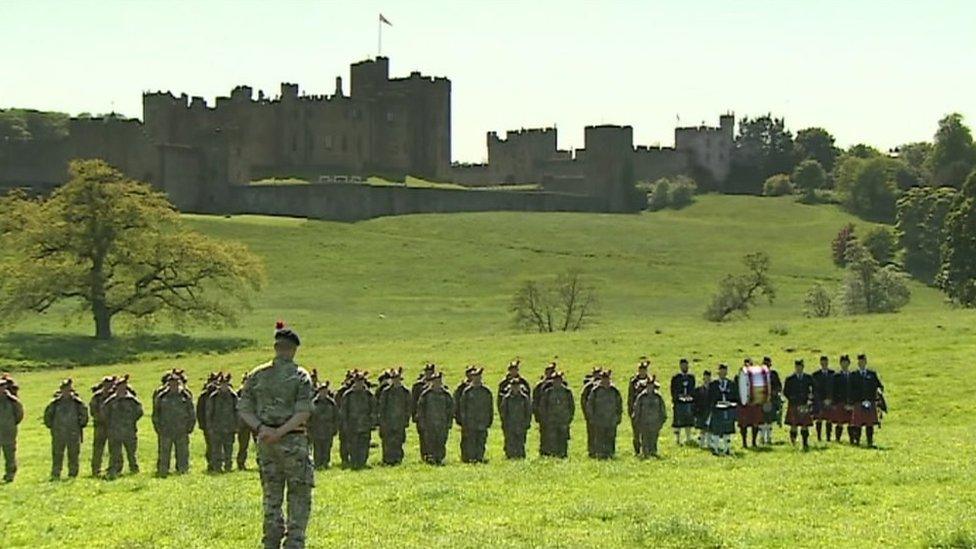Donald Bell: The first footballer to earn the VC
- Published
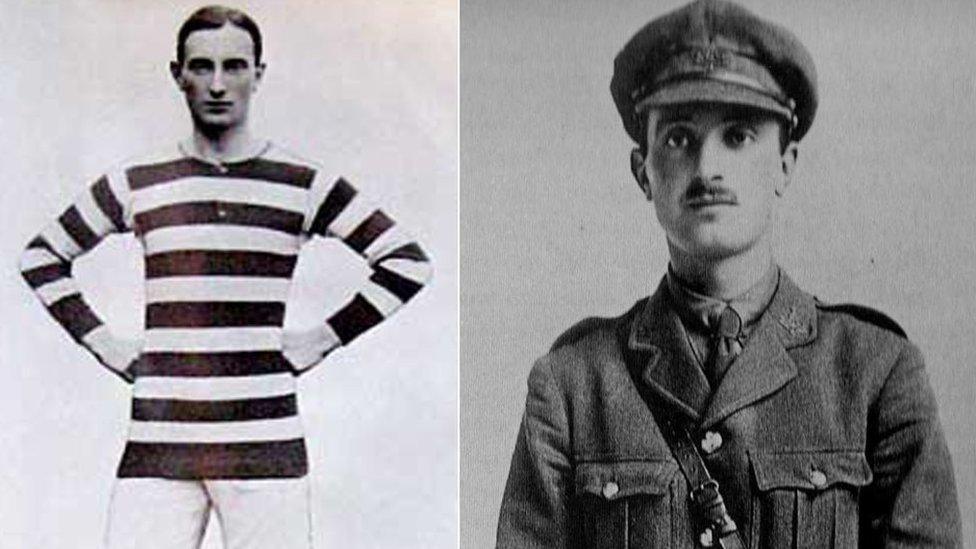
Donald Bell was was playing professional football for Bradford Park Avenue when the war started
Donald Simpson Bell was an "outstanding" footballer but left it behind to join up when World War One started. He used his athleticism to save many lives when he knocked out a machine-gun post but was killed a few days later when he attempted similar heroics once more. He became the only professional footballer to be awarded a Victoria Cross during the conflict.
When World War One broke out, Donald Bell was playing football for Bradford Park Avenue.
He was a talented all-rounder but chose football after working as a teacher. He signed as a professional for the Yorkshire team having played as an amateur for Crystal Palace, Newcastle United and Bishop Auckland.
In 1914, he wrote to the directors at Bradford: "I have given the subject very serious consideration and have now come to the conclusion I am duty-bound to join the ranks."
According to the Professional Footballer's Association, Bell was an "outstanding player who would surely have graced the international arena".
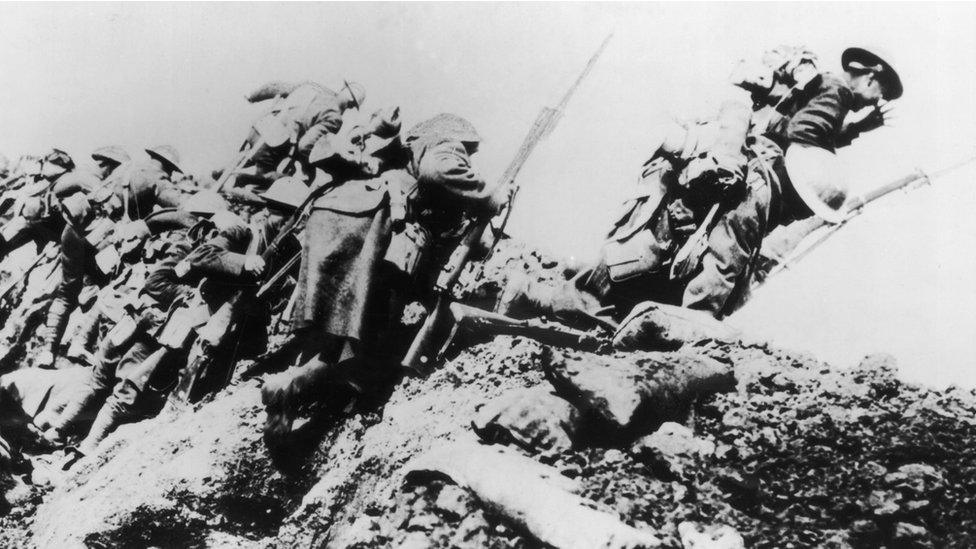
The Battle of the Somme started on 1 July 1916 and lasted until 18 November
On 5 July, the fifth day of the Battle of the Somme, 2nd Lt Bell, who was from Harrogate, was advancing with his comrades along the 1.4km-long Horseshoe Trench near La Boiselle.
He and his fellows from 9th Battalion the Yorkshire Regiment, the Green Howards, found their way barred by a German machine-gun.
It was the "biggest fluke alive" according to Bell but his actions shortly after 18:00 that day saved hundreds of his colleagues.
As the gun fired heavily on his fellow fighters, Bell and two others - Cpl Colwill and Pte Batey - crept along a communication trench before darting across open ground to get to the crew manning the weapon.
Bell shot the gunner with his revolver and a series of well-thrown bombs won the position for the British.
"I only chucked one bomb," Bell wrote to his mother, "but it did the trick."
In a letter to his sister Nancy, he wrote: "I was lucky enough to knock out a machine-gun which was causing the lads some bother."
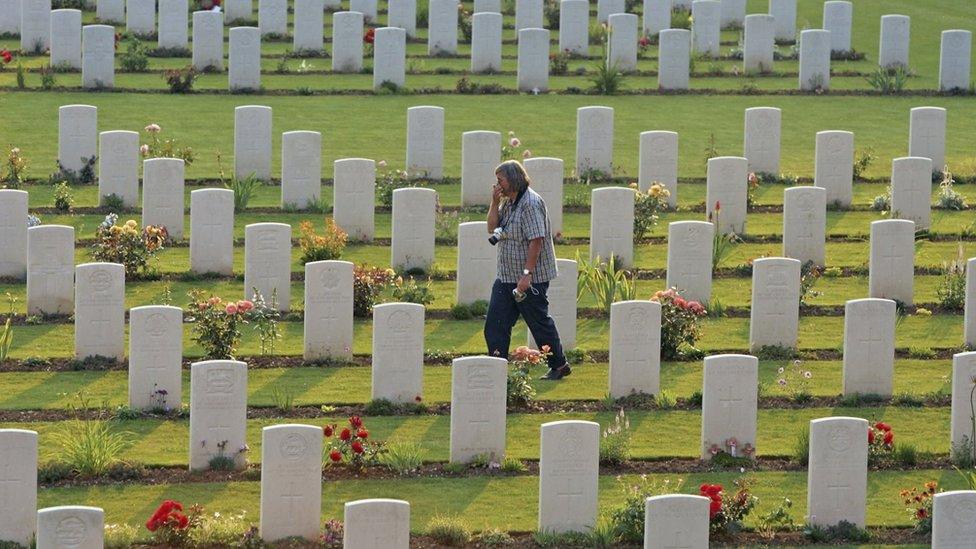
More than one million men were injured or killed during the Battle of the Somme
The citation for his VC read: "This very brave act saved many lives and ensured the success of the attack."
His battalion's attack on the German trench had started well according to Stephen Erskine, curator of the Green Howard's Museum in Richmond, with more than 140 prisoners and two machine-guns captured.
"But other machine-guns then began to fire heavily on the battalion," he said.
"At this point the individual initiative of Bell kicks in.
"He, as an athlete, picks up bombs and runs across open ground exposing himself to German fire and attacks the machine-gun that's devastating the battalion.
"He recognises that 'if I don't do something here this is going to fail; not only is it going to fail in terms of us taking the ground, an awful lot of men are going to be killed by this machine-gun if I don't do something about it'."
The Germans were "suddenly very scared" to see a "crazy Englishman" running at them, Mr Erskine said.
"It's great sitting behind a machine-gun because you are doing your job at a huge distance.
"But when these guys actually get through that fire and are in your face it is a totally different story.
"They would have been horrified and stunned to see someone with the audacity to come leaping over a trench and No Man's Land and start throwing bombs and taking pistol shots at them.
"Unbelievably, on 10 July he does exactly the same thing again only this time they get him before he gets them."
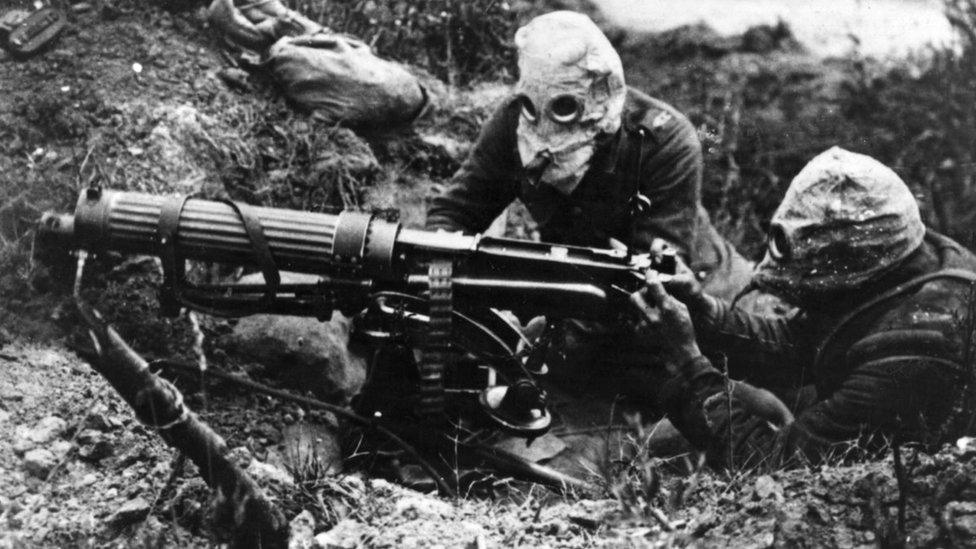
Gas and guns were two key weapons in World War One trenches
On 10 July 1916, Bell joined the 8th battalion for another attack on a trench. At the age of 25 he was killed making a similar attempt on another gun placement at Contalmaison.
"When leading a bombing attack he received a bullet through the crown of his helmet which did not prevent him carrying on for another 20 minutes or more, during which time shell splinters cut through his helmet and damaged the front of his tunic without wounding him," wrote Bell's brother Cpl William Bell.
"Finally, a large shell splinter entered his body through the shoulder and proved fatal."
Bell would have known he was pushing his luck too far on the second attack, Mr Erskine said.
"At the end of that first action he knows 'I got away with something there, I was pushing my luck'.
"So really the second time he does it he must know 'what's the chances of me getting away with it twice?'
"And yet he still does it."
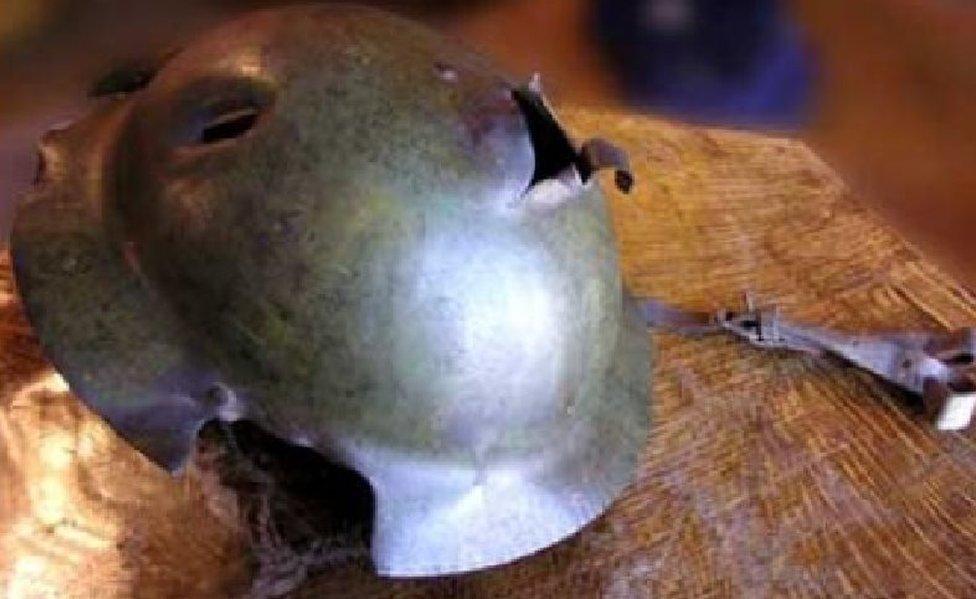
Five days after the events which won him the VC, Donald Bell made another attempt to take a German gun, this time being shot in the head. He actually survived the bullet which went through his helmet but was killed a short while later
His death was keenly felt by his family, pupils and comrades-in-arms according to historian Richard Leake, author of A Breed Apart which is the story of Bell and another VC winner Archie White.
It was announced on 8 September 1916 that Bell had been awarded the VC.
"The action which earned him the VC was one of unflinching courage and by that noble deed he saved many lives and assured the success of that attack," wrote Maj HAS Prior, commanding officer of Bell's battalion, to his family.
Another comrade of Bell's wrote: "He had the courage of a lion and always seemed to be on the lookout for ways and means of making things easier for his comrades.
"His death was greatly deplored, though grief was qualified by pride in the fact that he had met the death he would have wished."
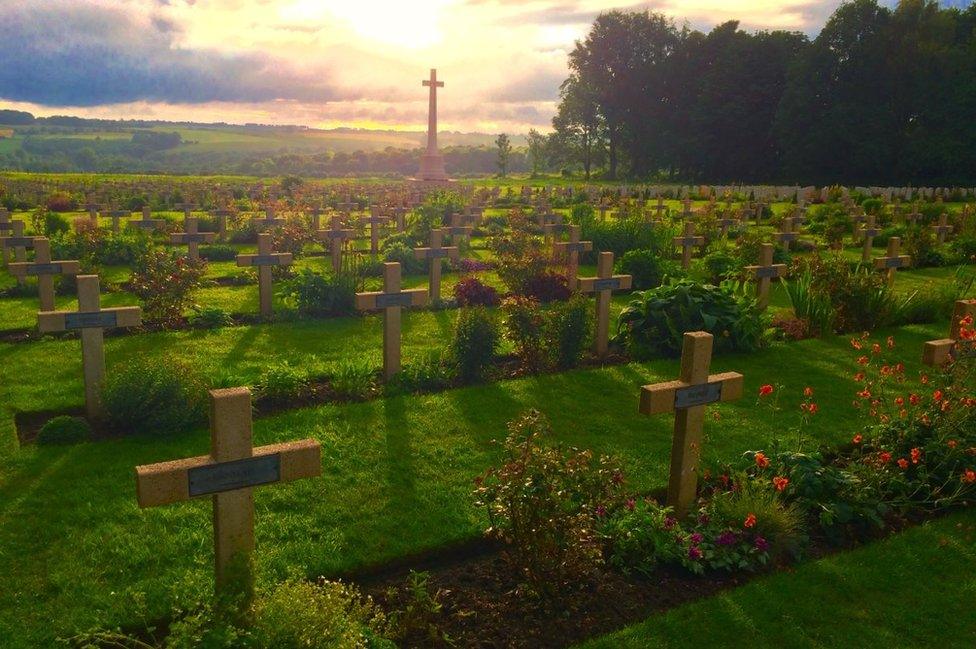
"He was a teacher and footballer but he was also one of those miniscule percentages of people who have within themselves the capacity to do something incredible," Mr Erskine said.
"You've got an awful lot of people walking on this planet today because of what Donald Bell did, never mind the bravery of that action on that day, the consequence wasn't just that he saved those men but he saved their children and grandchildren as well."
"Typical of the man, he gave up any chances of personal glory on the football field for the honour of fighting for his country," said Mick McGuire, assistant chief executive of the PFA said in 2000 when unveiling a memorial to Bell at Contalmaison.
"Donald was a marvellous man, a great credit to our country and a great credit to our game."

The Battle of the Somme
Began on 1 July 1916 and was fought along a 15-mile front near the River Somme in northern France
19,240 British soldiers died on the first day - the bloodiest day in the history of the British army
The British captured just three square miles of territory on the first day
At the end of hostilities, five months later, the British had advanced just seven miles and failed to break the German defence
In total, there were over a million dead and wounded on all sides, including 420,000 British, about 200,000 from France and an estimated 465,000 from Germany
Find out more:

- Published28 June 2016
